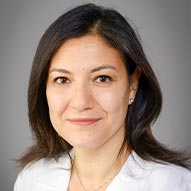Dallas
214-456-8000
Fax: 214-456-8005
Plano
469-497-2505
F: 469-497-2511
Park Cities
469-488-7000
Fax: 469-488-7001
Prosper
469-303-5000
Fax: 214-867-9511
214-456-8000
Fax: 214-456-8005
469-497-2505
F: 469-497-2511
469-488-7000
Fax: 469-488-7001
469-303-5000
Fax: 214-867-9511
A pediatric peptic ulcer is a sore in the lining of the stomach or the upper part of the intestine (duodenum). The ulcer develops when stomach acid damages the walls of the stomach or duodenum.
There are several tests to diagnose peptic ulcers. A doctor will go over your child's medical history and perform a physical exam. Your healthcare provider may also perform one or more of the following
The cause of your child's peptic ulcer determines the treatment. Your healthcare provider may recommend one or more of the following treatments:























